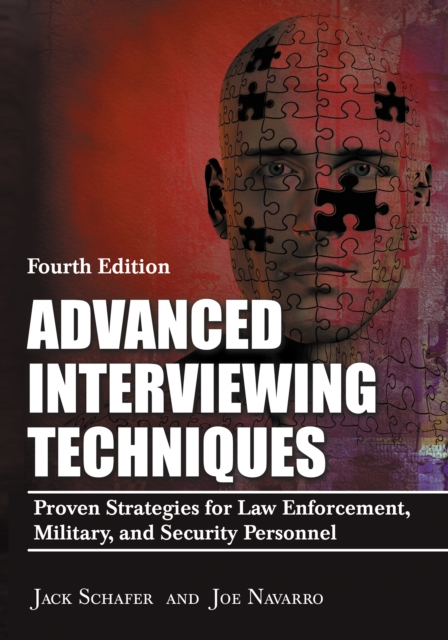
Advanced Interviewing Techniques PDF
by Jack Schafer, Joe Navarro
Description
Law enforcement officers face difficult challenges in light of the new social environment in which they must work.
With additional public scrutiny on police tactics and interviewing methods, new techniques must be developed to address the changing political and social landscape.
Interviewing and interrogating methods must change in concert with the increased focus on community policing and the public demand to take a softer approach to interviewing and interrogation.
The new edition of this book presents positive interviewing techniques to conduct less intrusive, non-threatening interviews and interrogations without forfeiting investigative integrity.
Positive interviewing techniques focus on rapport building, which serves as the keystone for successful interviews. and interrogations. Suspects and witnesses who like the people who are interviewing them are more likely to confess or provide information of value.
Positive interviewing relies on psychological principles instead of threats and coercion to obtain needed information.
The psychological principles presented in this book derive from proven psychological research and have been proven effective in the field.
As with the previous book editions, this edition was written with working professionals in mind and contains advanced interviewing techniques.
Some basic topics emphasized in other interviewing books will not be addressed.
This book was designed as a quick reference guide rather than a comprehensive manual.
The enhanced outline format of the text and the extended Table of Contents provide for easy reference, reading, and comprehension.
The marketplace is replete with interviewing books and manuals; however, quickly locating information buried in thick manuscripts is costly and time-consuming.
The style of this book is consistent with the manner in which law enforcement officers like to receive information: quickly, authoritatively, and to the point.
Information
-
Download - Immediately Available
- Format:PDF
- Publisher:Charles C Thomas
- Publication Date:01/01/2023
- Category:
- ISBN:9780398093976
Information
-
Download - Immediately Available
- Format:PDF
- Publisher:Charles C Thomas
- Publication Date:01/01/2023
- Category:
- ISBN:9780398093976






